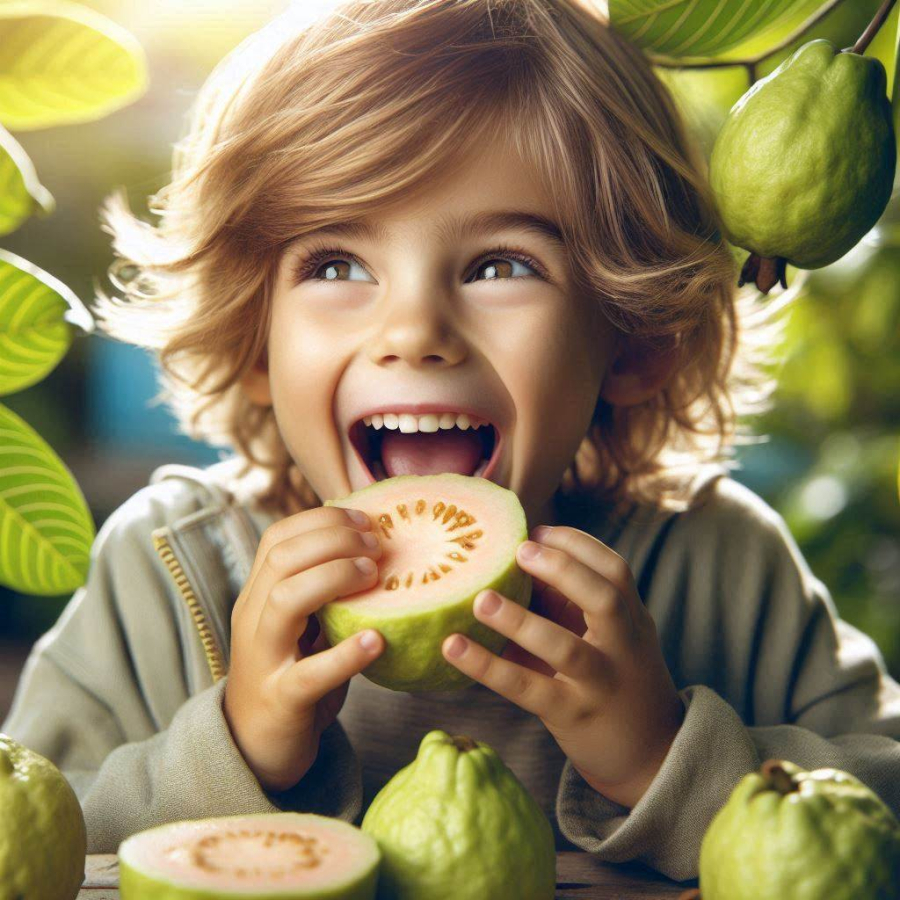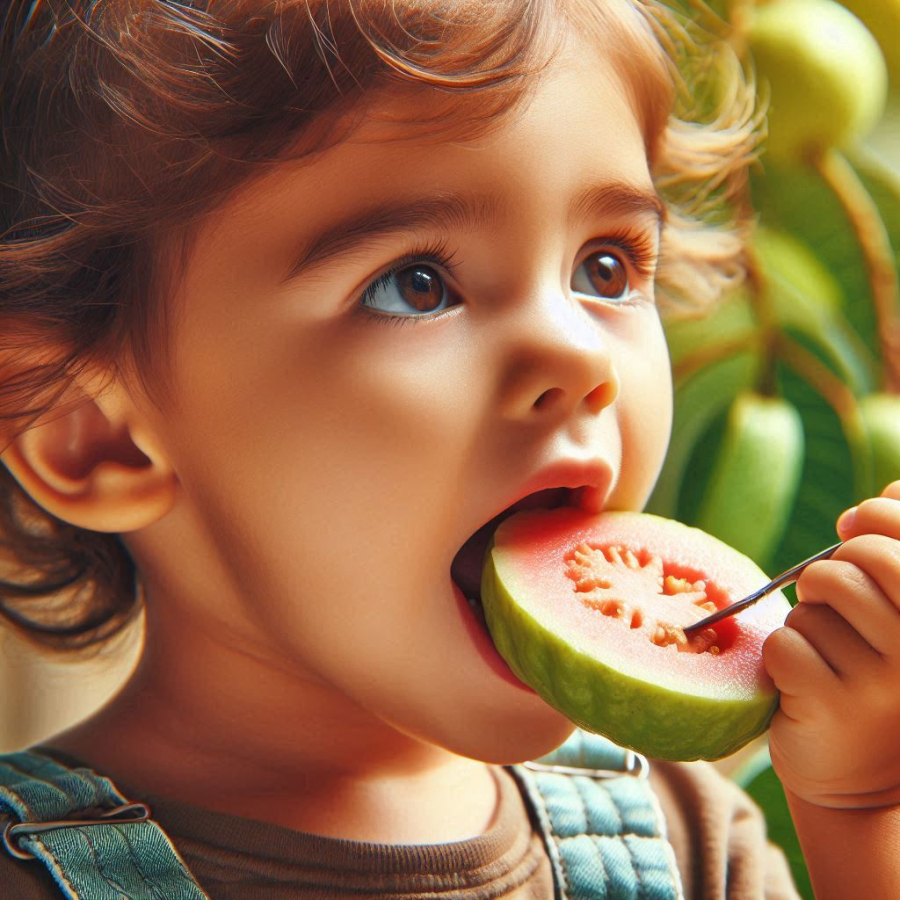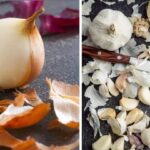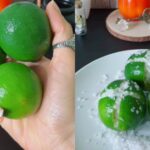Guava: A Natural Vaccine for Children
Guava is a popular fruit in Vietnam, renowned for its year-round availability. Various guava cultivars are available in the market, including the common guava, as well as Taiwanese guava, finger guava, seedless guava, and red-fleshed guava. The price of these guava types typically ranges from 10,000 to 40,000 VND per kilogram, depending on the variety and characteristics of each cultivar.
According to Polyclinic Doctor Bui Dac Sang from the Vietnam Academy of Science and Technology, guava is an excellent source of vitamins, especially vitamin C. Statistical data shows that 100g of guava contains 1g of protein, 15mg of calcium, 1mg of iron, 0.06mg of retinol (vitamin A), 0.05mg of vitamin B1, and a remarkable 228mg of vitamin C. Additionally, guava is rich in fiber, has low saturated fat and cholesterol content, and its sodium levels are not high. Regular and moderate consumption of guava offers numerous health benefits, including improved cardiovascular function, enhanced brain activity, better oral health, and a boosted immune system.
Dr. Nguyen Trong Hung, Head of the Adult Nutrition Counseling Department at the National Institute of Nutrition, shares a similar view. He points out that when comparing the vitamin C content in 100g of guava and orange, guava contains four times as much vitamin C as oranges. With the current rise in cases of measles, dengue fever, hand, foot, and mouth disease, and the common cold, feeding guava to children can help boost their immunity, especially during the back-to-school season.

Guava has four times the amount of vitamin C compared to oranges
According to Dr. Hung, vitamin C in guava, also known as ascorbic acid, plays a crucial role in supporting the immune system, fighting infections like the common cold, and aiding wound healing. Additionally, vitamin C is considered an antioxidant, protecting cells from damage caused by free radicals. This damage can lead to various health issues, including cardiovascular disease, cancer, and other chronic illnesses. Since the body cannot synthesize or store vitamin C, it is essential to include vitamin C-rich foods in our daily diet.
Moreover, the vitamin A content in guava benefits eyesight, promoting bright and healthy eyes. The antioxidant properties of guava also contribute to strengthening children’s immunity and reducing the risk of cancer. Furthermore, guava helps prevent diseases caused by free radicals (ROS), including Alzheimer’s, Parkinson’s, and other disorders such as hyperoxia, inflammation.
Finally, the abundant fiber in guava is beneficial for children’s digestion, helping to prevent constipation, appendicitis, diarrhea, and dysentery. This fruit also stimulates blood production in the body.
Dr. Nguyen Thanh Sang has treated many children with anemia and iron deficiency due to improper care. He emphasizes that for children over one month old, doctors recommend that parents provide adequate nutrition for their children. He also suggests regularly feeding guava to children by peeling, deseeding, and cutting it into small pieces or blending it into smoothies or juices for easier consumption.
According to Dr. Sang, guava is a vitamin C-rich fruit, containing four times the amount of vitamin C found in oranges, but at a reasonable price and always available in local markets. He considers guava a “natural vaccine” that is highly beneficial for children, especially with the increasing number of cases of measles, hand, foot, and mouth disease, and dengue fever during the back-to-school season.

Guava is a vitamin C-rich fruit, offering four times the amount of vitamin C compared to oranges, at an affordable price and readily available in local markets.
Precautions when eating guava:
– Do not feed unripe guava to children, as the nutrients in the fruit are only effective when it is fully ripe. Giving unripe guava to children can affect their digestion and lead to constipation.
– Children should not eat guava seeds, as they are challenging to grind, and may cause digestive issues. Polyclinic Doctor Bui Dac Sang advises, “If children do not chew the seeds properly and swallow them, it can hinder the digestive process, as the stomach cannot effectively handle guava seeds.”
– It is recommended to feed children the peel of guava from fruits that have been cleanly grown and harvested to ensure sufficient vitamin and mineral intake. If there are concerns about the safety of the guava, parents should wash and peel the fruit before giving it to their children.
– When preparing guava for children, cut it into small, appropriate pieces. For children under two years old, making juice or smoothies is a better option for easier digestion.
– Only feed children a moderate amount of guava, and for guava juice, limit it to about 2-3 times a week. If a child shows signs of itching, rash, or swelling, stop feeding them guava and consult a doctor immediately.
The Ultimate Skin Care Quartet: 4 Essential Serums for a Youthful, Radiant Complexion
The secret to a glowing, youthful complexion lies in the proper use of serums. These potent elixirs are designed to penetrate deep into the skin, infusing it with a concentrated boost of active ingredients. By incorporating serums into your skincare routine, you’ll notice a visible transformation in your skin’s texture and appearance, revealing a radiant and smooth canvas that defies the signs of aging.
The Magic of Lemons and Salt by Your Bedside
Introducing the Power of Lemons and Salt: Unveiling the Ancient Practice of Bedside Wellness.
Does placing lemons and salt by your bedside hold hidden powers? It’s time to uncover the ancient wisdom and explore the intriguing benefits of this simple yet potent practice. Prepare to embark on a journey of natural healing and discover the transformative effects of these everyday ingredients.






































